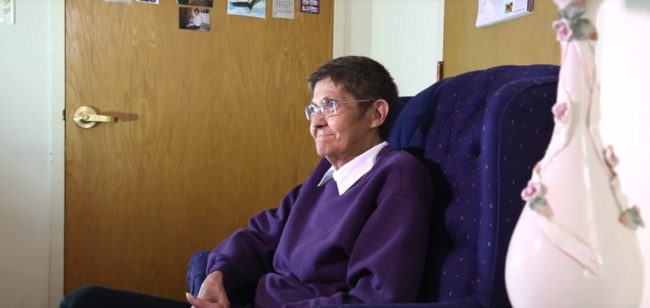Some parts of the country have weather that signals the arrival of the winter holiday season, but the South has Publix commercials. The Florida-based grocery store chain has made a Christmas tradition of its sentimental short films exalting family, fireplaces, and food bought from its stores and prepared with your love. “Whatever your tradition may be, we’re grateful to be a part of it,” a narrator with a delicate rasp says in the 2017 ad, “Traditions. A Publix Christmas story.”
However, Publix is showing a cooler, less compassionate side to some of its 188,000 employees. One of the more prominent supermarket brands in the southeast, it has taken a hard line against including the HIV-prevention medication known as pre-exposure prophylaxis (PrEP) in the insurance coverage it offers workers. But it remains a mystery whether the company is blocking coverage for PrEP due to cost concerns or the growing cry of employers (such as Hobby Lobby) that don’t want to cover medical care for issues or people they deem morally objectionable.
The company’s rejection of what is widely considered a major breakthrough in HIV prevention is as unique as it is puzzling, said David Holland, M.D., M.H.S., an assistant professor of medicine at Emory University and director of the Fulton County PrEP clinic in Atlanta, who unsuccessfully tried to get Publix to cover PrEP for one of the company’s employees. “We’ve started 255 people on PrEP at our clinic alone, and this is the only person that we weren’t able to get PrEP for,” Holland said.
Publix representatives were contacted numerous times for an explanation of the company’s decision, and they responded with a brief statement noting that “the health plans offered by Publix provide generous medical and prescription coverage.” “Annually, we evaluate benefits covered under our health plans,” Publix spokesperson Brenda Reid wrote in the statement. “There are numerous medications covered by the plan used in the treatment of HIV.” “There are some medications that have coverage limitations or require prior authorization,” Reid added. “Any Publix associate with questions regarding his or her coverage can contact our benefits department directly.”
The employee Holland assisted appealed the initial denial, was rejected twice more, and “was the only one we were not able to resolve through an appeal,” Holland said. “What we found out from the insurance company was that it came, ultimately, from the employer,” he added. “It wasn’t just an insurance issue; it was [that] the employer did not want it covered in the insurance.”
Publix officials did not respond to written questions about the company’s rationale for omitting coverage of PrEP for its employees, but Holland and public health advocates believe it was unlikely due to costs. Blogger Josh Robbins first reported in November 2016 that Publix was denying its employees access to PrEP, and the reasoning behind it is still unclear.
“It’s not like every single employee is going to go out and get PrEP, so it can’t be cost,” said Devin Barrington Ward, a social justice advocate and strategist who works with Georgia legislators on behalf of the National Black Leadership Commission on AIDS. “And I guarantee you, if you did a cost analysis, it would cost them less on their insurance premiums if they covered PrEP for someone who is HIV negative versus that person becoming HIV positive. We know that the cost for providing that person care increases exponentially because it’s not just one PrEP prescription.”
The lack of justification offered by Publix has led some to wonder whether the company is refusing to cover the drug on moral grounds.
“Frankly, I’m shocked that, in a day like today, a company like Publix wouldn’t recognize the benefits of PrEP,” said Amistad St. Arromand, who has worked closely with Fulton County health officials on HIV/AIDS-related issues and serves as executive director of The Gentlemen’s Foundation, a black gay non-profit in Atlanta.
PrEP is the common name for a new application of the drug Truvada (tenofovir/FTC), which has long been part of some regimens for people living with HIV. Within the past decade, research has shown that Truvada is also highly effective at preventing the contraction of HIV when used daily by HIV-negative individuals, with the Centers for Disease Control and Prevention (CDC) estimating that it can virtually eliminate the odds of sexually contracting HIV.
“Publix is a billion-dollar corporation, and so if they really wanted to [provide coverage of PrEP] they could,” Arromand said. “I do believe it’s probably a lack of education, a lack of awareness or even probably ignorance — and I’m hoping it’s education and awareness. This is reminding me of the women’s debate that we’ve been having for years where a company is choosing to control what and how its employees access health care.”
Is the “Religious Freedom” to Deny Health Care to Blame?
Such concerns come during an era when more American employers and service providers are asserting their “religious freedom” to set workplace policies on moral grounds. The U.S. Supreme Court’s 2014 decision in Burwell v. Hobby Lobby Stores, Inc., ruled that privately held companies can be exempted from the Affordable Care Act (ACA)’s mandate to provide contraception based on their owners’ religious views.
“This idea that an employer’s religious beliefs may trump an individual employee’s well-being and right to access important medical technologies, services, and drugs, I think is absolutely a lasting legacy of that case,” said Anne Tucker, associate professor at the Georgia State University College of Law. “The message of that particular case was [that] if employers disagree on personal moral bases and want to make health insurance coverage decisions based on that individual morality, [then] that, when it is sufficiently tied to a religion, can be a justification.”
All states set their own mandates for what insurance coverage must include beyond the essential benefits of the ACA. While Georgia requires insurance packages to include a prescription drug plan, insurers and employers determine what medicines are included in that plan, said Glenn Allen, a spokesperson for Georgia’s Office of Commissioner of Insurance. The Georgia legislature determines what services are mandated and adding any new mandates, such as PrEP coverage, to the list requires legislative action, Allen said.
Tucker said that if Publix’s decision is motivated by morality, it continues “the narrative of Hobby Lobby,” but it is not an exact comparison since there is neither a state nor a federal mandate for insurance plans to include PrEP, unlike the ACA’s birth control requirements. While U.S. Supreme Court Justice Samuel Alito wrote that the majority opinion in Hobby Lobby “should not be understood to hold that insurance-coverage mandates … must necessarily fall if they conflict with an employer’s religious beliefs[,]” businesses like Publix stand on solid legal ground due to longstanding attitudes toward health care in the United States.
“The idea [is] that health coverage is voluntary, is an additive benefit and that it is [provided] by the good grace of employers,” Tucker said. “[It] is not considered a baseline right. That’s the default setting; that’s the frame of reference most people have.”
Other fronts in the “religious freedom” debate include the Trump administration’s implementation of new rules at the civil rights division of the U.S. Department of Health and Human Services (HHS) earlier this month permitting medical providers to deny service based on their religious beliefs. The HHS rules were the third “religious freedom” measure enacted by the administration in its first year, and White House lawyers also argued on behalf of “religious liberty” when the U.S. Supreme Court heard oral arguments in Masterpiece Cakeshop, Ltd. v. Colorado Civil Rights Commission last November.
In that case, owners of a Christian bakery requested an exemption from the state’s non-discrimination law because they felt making a cake for a same-sex wedding went against their religious beliefs. Tucker thinks this involves the same dynamics as the Hobby Lobby case. “That is another way of [asking], can an individual or group of individuals, through their business, use their individual religious beliefs as grounds to exempt the business entity from an otherwise generally applicable law,” Tucker said.
Publix’s Socially Conservative Politics
Publix is a privately traded company whose stock is only available to eligible employees and the company’s board of directors. According to the Miami Herald, employees own 30% of the company’s stock, but the grocery chain’s board of directors remains largely under the control of descendants of Publix founder George Jenkins.
That leadership team has created a conservative corporate profile for Publix, from its explicit celebration of Christmas in the aforementioned holiday commercials, to its political action committee donating to Republicans more than two to one in 2012, 2014, and 2016, according to the Center for Responsive Politics. Publix Board Chair Ed Crenshaw has donated exclusively to Republican politicians, as have members of the company’s founding family.
Publix heir Carol Jenkins Barnett and her husband, board Vice Chair Hoyt Barnett, have donated more than $100,000, all going to support Republican candidates and causes. In 2016, Jenkins Barnett also donated $800,000 to a campaign against legalized medical marijuana in the company’s home state.
Randall Jones, who in 2016 became the first non-family member named CEO of Publix, has likewise donated primarily to GOP candidates, as have board members Stephen Knopik and G. Thomas Hough.
However, two of the eight members of the Publix board of directors — Jane Finley and Jessica Blume — donated to the presidential campaigns of Barack Obama and Hillary Clinton.
Publix scored a zero on the Human Rights Campaign’s analysis of workplace fairness and has been accused of multiple instances of anti-LGBT discrimination. Although the grocery chain was among the third of Fortune 500 companies not offering domestic partnership benefits to same-sex employees in 2014, that year Publix did begin providing spousal benefits for gay and lesbian employees who were legally married in a state outside the southeast, where such unions remained prohibited until the U.S. Supreme Court’s ruling in Obergefell et al. v. Hodges in June 2015.
Denying PrEP in the Region With the Nation’s Highest HIV Rates
Among the five commitments made in Publix’s mission statement are dedication “to the dignity, value, and employment security of our associates” and involvement as “responsible citizens in our communities.” The company’s position on PrEP violates both of these tenets, Barrington Ward said. “It’s irresponsible for companies that are doing business in states with high disease burdens not to offer these benefits to their employees,” he said. “They’re not being a good corporate or community partner.”
Three of the seven states that Publix operates in — North Carolina, Georgia, and its home state of Florida — are ranked in the top-10 states with the highest number of HIV diagnoses in 2016, according to the CDC. The Miami metropolitan area ranked first in the county in the prevalence of HIV diagnoses, with almost 39 out of every 100,000 residents acquiring the disease in 2016, while the Atlanta area, where Fulton County health officials received pushback from Publix on PrEP coverage, ranked fourth, with 1,701 new infections in 2016, or more than 29 cases per 100,000 residents, according to CDC surveillance data.
“They’re not a mom-and-pop grocery store,” Barrington Ward said. “For them to not know that they operate in a region that carries the bulk of the epidemic at this point, that most of the new cases in the United States occur where their grocery stores are, and for them not to provide that protection for their staff is irresponsible, at the very least. Publix’s general reputation as a stellar company to work for makes their opposition to protecting their employees via PrEP even more confounding, Arromand said. “I was really shocked to learn about this because I know I have tons of friends who work for Publix and, believe it or not, I hear really great things about Publix as a corporation,” Arromand said. “The fact that they are employee-driven, the fact that there are plenty of opportunities for their employees to advance as the company grows, and certainly not least, [at a company whose motto is] ‘Where Shopping is a Pleasure,’ working at Publix should also be a pleasure for its employees,” added Arromand, who commended the work being done to increase access to PrEP in the Atlanta area, where more than 30,000 people are living with HIV.
“I’m really proud of the work that we have done over the past two years in Fulton County, where we came from not even having access to PrEP as a public health function, to having systems in place at the Fulton County health department and at Morehouse College to ensure that anyone who is interested in getting PrEP can get PrEP,” Arromand said. “It has been a struggle to get started, but now that the ball is rolling down the hill, it is rolling smoothly. I just wish Publix would learn some lessons from us.”
While Publix officials said they review their insurance offerings yearly, both employers and insurers are allowed to change their insurance offerings throughout the year and not just on an annual basis, said Allen with the Georgia insurance commissioner’s office.
Arromand and Barrington Ward said direct-action protests might be needed to draw attention to Publix’s stance on PrEP and pressure the company to amend its policies, as it is unlikely that the Georgia legislature will add the HIV-prevention medication to the state’s list of required coverage anytime soon.
Tucker, the law professor at Georgia State University, agreed that Publix’s policy is more susceptible to advocacy than a lawsuit. “I’m not sure it’s legally actionable, but that doesn’t mean it’s not reprehensible,” Tucker said of Publix’s denial to cover PrEP. “That doesn’t mean that it’s not a bad public relations story, that doesn’t mean it can’t be the focus of other campaigns to try to change it.”
[CORRECTION 1/31: An earlier version of this article incorrectly stated that the Fulton County clinic started over 400 people on PrEP. We have corrected the text to reflect that they have started 255 on PrEP.]
Ryan Lee is a writer based in Atlanta and a columnist for the Georgia Voice newspaper, which focuses on LGBT issues in the South.





